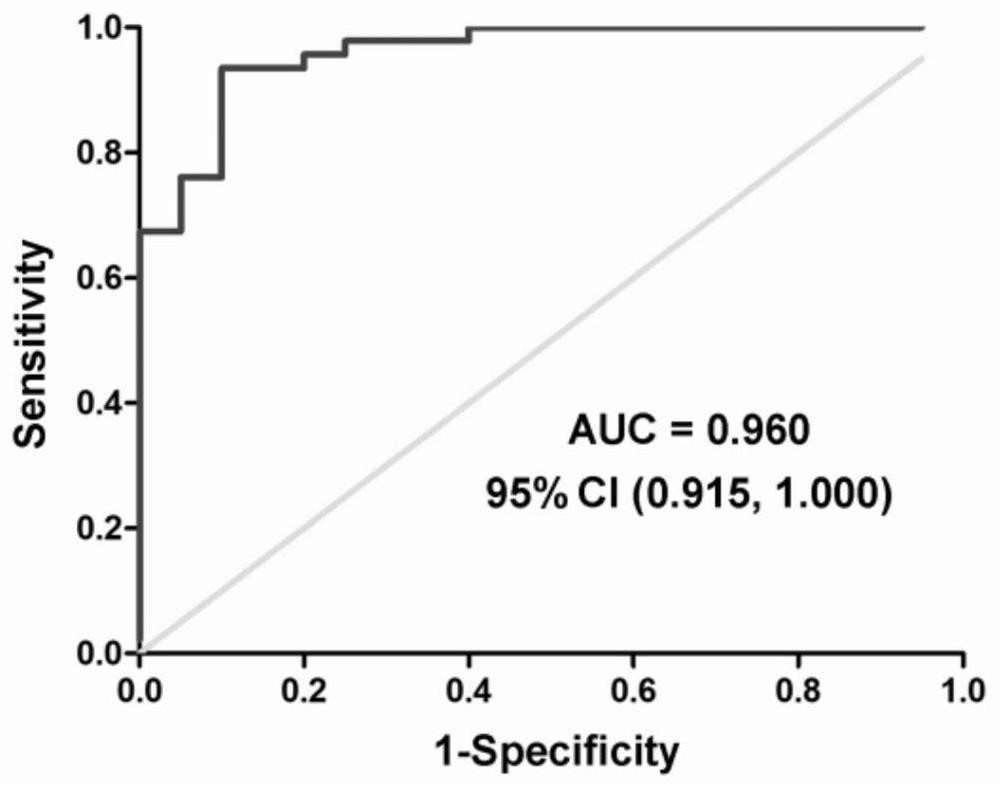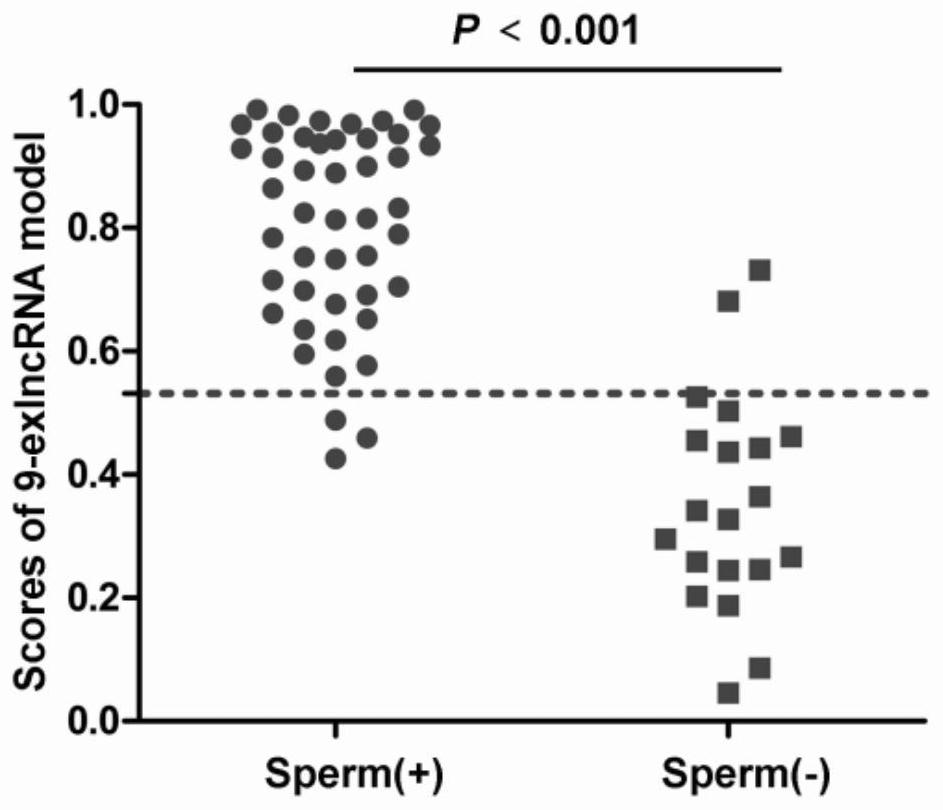Reagent kit for predicting semen collection outcome of patient suffering from non-obstructive azoospermia
An azoospermia and kit technology, applied in the field of biomedicine, can solve the problems of poor stability, poor sensitivity, and difficult clinical application of free RNA detection, and achieve fully scientific and practical effects.
- Summary
- Abstract
- Description
- Claims
- Application Information
AI Technical Summary
Problems solved by technology
Method used
Image
Examples
Embodiment 1
[0025] Example 1 Purification and long-chain RNA sequencing of seminal exosomes from normal volunteers and NOA patients
[0026] Take semen (>0.5 mL) from a single sample, centrifuge at 4°C, 12,000×g for 30 minutes to remove cell debris, then take the supernatant, filter it through a 0.22 μm filter, and collect exocytosis by ultracentrifugation at 4°C, 100,000×g for 70 minutes Body precipitation. After the pellet was resuspended in PBS, it was again ultracentrifuged at 100,000×g at 4°C for 70 min to obtain purified exosome pellet.
[0027] The purified exosomes were precipitated, added to the RNA lysate, and the total exosome RNA was obtained by phenol-chloroform extraction and library construction. Followed by long-chain RNA (lncRNA) sequencing.
Embodiment 2
[0028] Example 2 Target gene screening
[0029] Analyze the sequencing data in Example 1, screen the testis-specific highly expressed genes according to the NCBI database information, and select the top 20 genes showing a downward trend in the sequencing results and the largest log2(FC) multiple of difference.
Embodiment 3
[0030] Example 3 Determination of lncRNA expression in seminal plasma exosomes of NOA patients
[0031] The exosomal RNA in the seminal plasma of NOA patients was extracted and detected by real-time fluorescent quantitative polymerase chain reaction (qRT-PCR). The specific steps are as follows:
[0032] (1) Precipitate the purified exosomes obtained in Example 1, add RNA lysate, obtain exosome total RNA by phenol-chloroform extraction, and use Nanodrop2000 to detect RNA concentration and purity. The reverse transcription reaction was performed with 500ng RNA / 10 μL system, and the reverse transcription reaction solution was obtained and its concentration was detected. Dilute the reverse transcription reaction solution to 10 ng / μL with DEPC water, aliquot 20 μL / tube and store at -80°C. For the reverse transcription reaction solution used for qRT-PCR detection, the concentration of the reverse transcription reaction solution should be adjusted to 2.5ng / μL.
[0033](2) Using β-A...
PUM
 Login to View More
Login to View More Abstract
Description
Claims
Application Information
 Login to View More
Login to View More - R&D
- Intellectual Property
- Life Sciences
- Materials
- Tech Scout
- Unparalleled Data Quality
- Higher Quality Content
- 60% Fewer Hallucinations
Browse by: Latest US Patents, China's latest patents, Technical Efficacy Thesaurus, Application Domain, Technology Topic, Popular Technical Reports.
© 2025 PatSnap. All rights reserved.Legal|Privacy policy|Modern Slavery Act Transparency Statement|Sitemap|About US| Contact US: help@patsnap.com



